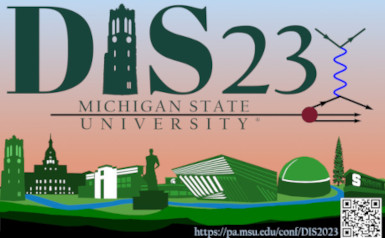Speakers
Description
The large integrated luminosity collected by the ATLAS detector at the highest proton-proton collision energy provided by LHC allows to probe the presence of new physics that could enhance the rate of very rare processes in the SM. The LHC can therefore gain considerable sensitivity for Flavour Changing Neutral Current (FCNC) interactions of the top quark. In the SM, FCNC involving the top-quark decay to another up-type quark and a neutral boson are so small that any measurable branching ratio for such a decay is an indication of new physics. The ATLAS experiment has performed searches for FCNC couplings of the top quark with a photon, gluon, Z boson or Higgs boson. In this contribution, the most recent results are presented, which include the complete data set of 139/fb at 13 TeV collected at the LHC during run 2 (2015-2018). The large data set, together with improvements in the analysis, yields a strong improvement of the expected sensitivity compared to previous experiments and partial analyses of the LHC data. Another example of a rare SM process sensitive to new physics processes is the 4-top production. The latest results for this process will be presented and the experimental challenges and systematic uncertainties will be discussed.
| Submitted on behalf of a Collaboration? | Yes |
|---|---|
| Participate in poster competition? | No |




